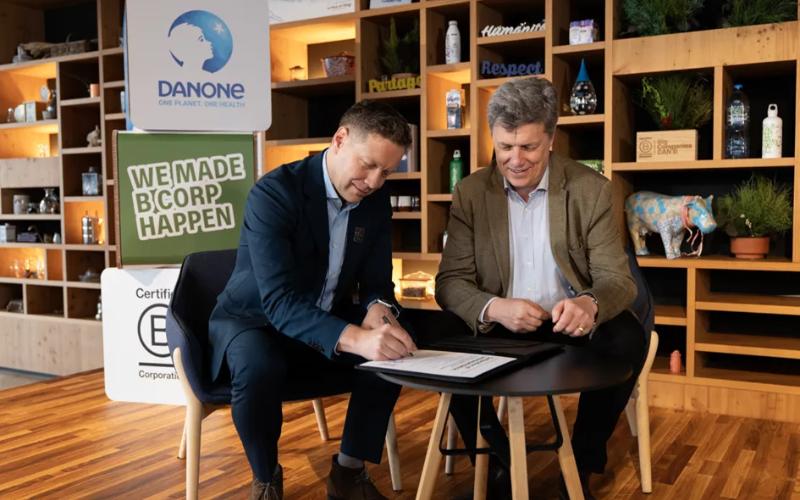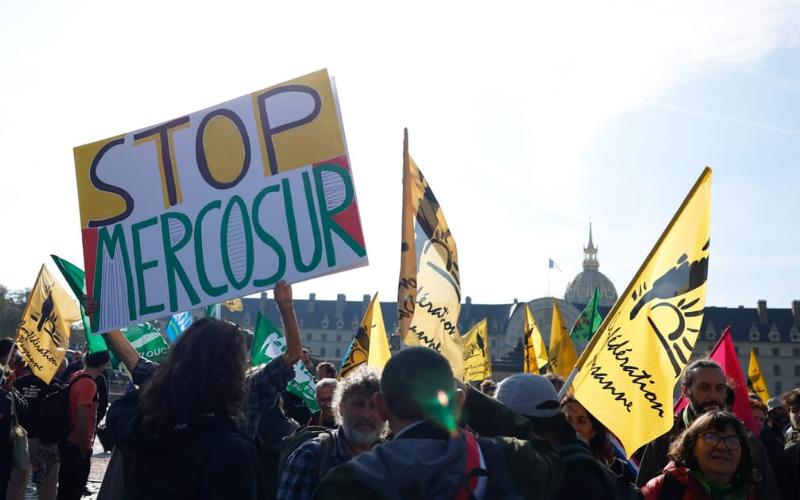Ireland’s Dairy Industry Calls for EU Action to Mitigate China Trade Dispute Impact on Exports
Dairy Industry Ireland (DII) has urged the European Commission to prioritize a swift resolution to the growing trade tensions between the EU and China over electric vehicle (EV) tariffs. Following a recent EU decision to impose duties on Chinese-made EVs, concerns have risen over potential retaliatory actions that could impact Irish dairy and food exports to China.

The dispute centers around the EU's assertion that Chinese subsidies have enabled the country's EV manufacturers to undercut European producers, causing a sharp rise in the market share of Chinese-built electric cars across Europe—from just 3.9% in 2020 to 25% by September 2023. According to the European Commission, these duties, set to take effect on October 31, are a necessary step to safeguard Europe’s automotive sector and its long-term green industrial ambitions. However, this approach has sparked concerns in Ireland’s dairy sector.
Conor Mulvihill, Director of Dairy Industry Ireland, expressed apprehension about the potential fallout for the dairy industry and its reliance on Chinese markets. "The Irish dairy industry produces and exports in full compliance with both EU and WTO regulations," Mulvihill stated. "While any threat of trade disruption is unwelcome, and China is an essential market for both EU and Irish dairy, Irish dairy products have a well-diversified mix of destinations, primarily directed to the UK and EU markets. At present, China’s complaints mainly focus on a subset of dairy products, including certain cheeses."
Mulvihill emphasized that Irish farmers and dairy producers should not bear the brunt of an unrelated trade dispute, underscoring the importance of a balanced dialogue between the EU and China. Denis Drennan, President of the Irish Creamery Milk Suppliers Association (ICMSA), echoed these concerns, stating, "It’s imperative that a fair regime on EV imports be established, one that addresses both European and Chinese interests without jeopardizing Ireland's food exports or the farming families who rely on them."
The broader implications of this trade clash have prompted EU Commission President Ursula von der Leyen to defend the EV tariff measures, arguing that the sector is crucial to Europe’s future competitiveness and green leadership. "This anti-subsidy investigation will be thorough, fair, and fact-based," she remarked, adding, “We will do this in full respect of our EU and international obligations.”
Beijing has firmly opposed the EU’s tariffs, labeling them "unfair" and "protectionist." A spokesperson from China’s Ministry of Commerce issued a statement condemning the move and hinting at potential retaliatory tariffs. Earlier this year, China launched its own investigation into EU dairy products, widely perceived as a direct response to the EV tariff dispute.
Should the EU’s tariffs proceed as planned, Chinese EV brands could face increased duties ranging from 17% for BYD vehicles to over 35% for state-owned SAIC models. This development underscores the EU’s resolve to protect its industrial interests, despite potential risks to the agricultural sectors of member countries like Ireland.
The Irish dairy industry, which has cultivated a strong presence in the Chinese market, now faces an uncertain future as it navigates the repercussions of this geopolitical clash. Dairy Industry Ireland and other agricultural advocates have called on the EU to explore diplomatic avenues to prevent further escalation and safeguard the livelihoods of rural communities that depend on stable trade with China.
Conor Mulvihill, Director of Dairy Industry Ireland, expressed apprehension about the potential fallout for the dairy industry and its reliance on Chinese markets. "The Irish dairy industry produces and exports in full compliance with both EU and WTO regulations," Mulvihill stated. "While any threat of trade disruption is unwelcome, and China is an essential market for both EU and Irish dairy, Irish dairy products have a well-diversified mix of destinations, primarily directed to the UK and EU markets. At present, China’s complaints mainly focus on a subset of dairy products, including certain cheeses."
Mulvihill emphasized that Irish farmers and dairy producers should not bear the brunt of an unrelated trade dispute, underscoring the importance of a balanced dialogue between the EU and China. Denis Drennan, President of the Irish Creamery Milk Suppliers Association (ICMSA), echoed these concerns, stating, "It’s imperative that a fair regime on EV imports be established, one that addresses both European and Chinese interests without jeopardizing Ireland's food exports or the farming families who rely on them."
The broader implications of this trade clash have prompted EU Commission President Ursula von der Leyen to defend the EV tariff measures, arguing that the sector is crucial to Europe’s future competitiveness and green leadership. "This anti-subsidy investigation will be thorough, fair, and fact-based," she remarked, adding, “We will do this in full respect of our EU and international obligations.”
Beijing has firmly opposed the EU’s tariffs, labeling them "unfair" and "protectionist." A spokesperson from China’s Ministry of Commerce issued a statement condemning the move and hinting at potential retaliatory tariffs. Earlier this year, China launched its own investigation into EU dairy products, widely perceived as a direct response to the EV tariff dispute.
Should the EU’s tariffs proceed as planned, Chinese EV brands could face increased duties ranging from 17% for BYD vehicles to over 35% for state-owned SAIC models. This development underscores the EU’s resolve to protect its industrial interests, despite potential risks to the agricultural sectors of member countries like Ireland.
The Irish dairy industry, which has cultivated a strong presence in the Chinese market, now faces an uncertain future as it navigates the repercussions of this geopolitical clash. Dairy Industry Ireland and other agricultural advocates have called on the EU to explore diplomatic avenues to prevent further escalation and safeguard the livelihoods of rural communities that depend on stable trade with China.











